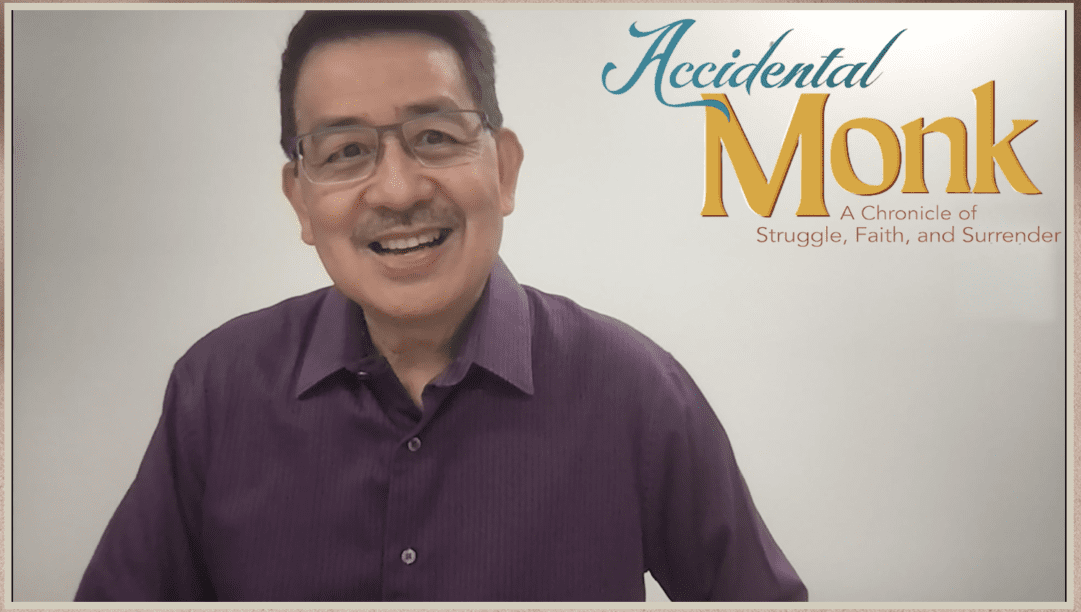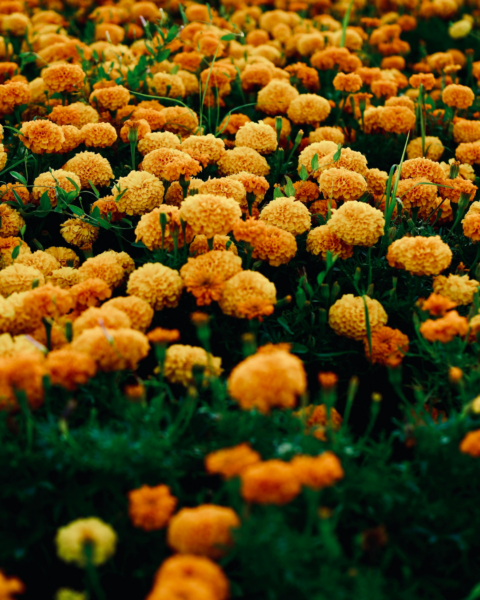I am delighted to share another beautiful submission to the Monk in the World guest post series from the community. Read on for Wil Hernandez’s reflection “Stability and Presence.”
About two years ago, as the Covid-19 pandemic was beginning to spread, I found myself stranded in an unlikely place: a Benedictine Abbey in the southern part of the Philippines. As it turned out it was to become my home for the next two and a half months. Originally, as part of the monastery’s Lenten Recollection during the Holy Week, I was to give a three-part series on the topic of Everyday Spirituality to the general public but because of the lockdown restrictions, I ended up with an intimate audience of ten monks on the subject in which I presumed they are all well-versed: Benedictine spirituality.
I’ve chosen to focus on stability—one of the three core Benedictine values—and arranged my presentation into three points corresponding to each of the first three days of the Holy Week: Centeredness, Commitment, Connectedness. The irony was that here I was addressing the topic of centeredness while feeling very distracted myself in light of my failed attempts to fly back to the U.S. due to several flight cancellations. My teaching on stability has boomeranged back to me on more than one occasion. With a mixed stance of anxiety and impatience I complained to the abbot each time my efforts to leave the abbey did not pan out in the way I envisioned them. It was tough to be fully present where I was, particularly with some of the people with whom I had to relate (I was staying in the monastic enclosure so I was stuck with the monks and they were stuck with me the whole time!). Bottom line, I struggled to experience a sense of “at-homeness” – a word which Henri Nouwen equates with the concept of real presence. For how could I even be at home with others when I couldn’t even be at home with myself?
One day I came across—rather providentially— this excerpted paragraph from Christine Valters Paintner’s book, Illuminating the Way: Embracing the Wisdom of Monks and Mystics, which she posted on Facebook:
In monastic tradition, stability is another of the great virtues . . . . As the desert mothers and fathers knew, you carry yourself wherever you go. So to leave a place to avoid certain dynamics or relationship patterns, you will only discover them again in the next place you arrive.
There was this one relevant question Christine raised which arrested me personally: “What are the patterns and dynamics which you find constantly emerging in your relationships with other people?” The last two sentences, highlighted in bold, spoke to me directly because of the crucial importance of “beingness”—who we are at our deepest core. As I emphasized during my presentation to the monks, centeredness remains the most solid foundation for any practice of stability since it is rooted in our identity. Either we live out of our true self in God, or out of our false self—or more accurately, our manifold false selves. We always have the choice out of which we will live.
Since all of us are still far from perfect, the broken parts of us will always show forth in our relationships more than anywhere else. As people who are “under construction” in terms of our relational deficits, we carry who we are all the time—whenever and wherever we go. To me this meant: “How I am in the United States with the people I circulate with there will be how I am in this Abbey with the monks I live with in the present time.” It’s only a question of who I want and choose to be—which will determine the health or unhealthiness of my relational patterns.
It’s very easy to put up a good front, or wear a mask, or choose to adapt, or assimilate in a new environment with new people around, but sooner or later, I am bound to relate just as I’ve always related—always within the tensional reality of my own woundedness and healing. Thus, I can be a wounded wounder or a wounded healer, depending upon how and from where I choose to operate.
Coming to the abbey, I was not oblivious of the fact that I carried with me certain relational wounds, some still raw and unhealed. This recognition was crucial even as I entered into a new set of relationships there. In a number of his writings, Nouwen referred to the trilogy of the false-self dynamics manifested in the erroneous belief that my identity rests on: what I do (performance), what I have (power), and what people say (popularity). The moment I succumb to operating out of any or all of these false identities, my relational dynamics with the people around me on a daily basis will inevitably be affected. In a number of instances, I could recall how my own crises in identity have subtly—and at times overtly—played out, touching on all three abovementioned aspects.
After reflecting on Christine’s piercing words, I vowed to free myself from any pressure to be someone other than who I truly am. I could not afford to carry an additional internal burden when I was already wrestling with the external burdens brought on by the new reality surrounding me. My musing on inner stability, roused by Christine’s quote, was quite liberating as I forged ahead toward the liminal space God has opened up for me at that time and place. Being thrust into monastic community life on a daily basis for a period of time radically altered the romanticized version that I had subconsciously held before.
I came to this community to teach but instead ended up being taught by the monks, through their living example, the Benedictine virtue of stability. Throughout my time at the abbey, I have come to deepen my understanding of what it’s like to embrace an everyday spirituality. The series of reflections I wrote in my diary serves as a continuing invitation for me to stay present wherever I am. For the essence of our spiritual life is all-encompassing, regardless of the shifting conditions in which we find ourselves locally or abroad, in a monastery or in the marketplace, COVID-19 or no COVID-19.
At the crux of my seemingly endless struggle while in the abbey, I realized, was my utter inability to yield to what and how God was summoning me to live: not from yesterday nor for tomorrow but within my today; not in faraway California but in the abbey in the southern Philippines, where God had placed me for a season (and for a reason). I expended—and consequently wasted—a lot of energy trying to imagine what life had been and what it could be while glossing over what it simply was in the moment.
Indeed our life with God is a spirituality of everyday life, which is what constitutes the here and now as it is lived out in the chaos and tangle of our mundane existence. In fact, it’s in the midst of all this—with or without the disruptive impact of a pandemic—that I can apply the ever-relevant core value of stability which is never the exclusive domain of monks and oblates. The life we each live every day in the present moment—in the ordinariness of it all—is the only normal life we can aim for, even when we stumble or fall. As Benedictines are often fond of invoking, “Always we begin again!”

Wil Hernandez, PhD, Obl. OSB, is a Benedictine oblate of Saint Andrew’s Abbey in Valyermo, California, where he annually conducts retreats on Henri Nouwen—whom he considers his patron saint and whose spirituality he tackles in his four Nouwen books. Wil is a spiritual director and serves as the executive director of CenterQuest, which hosts an international hybrid School of Spiritual Direction [SSD] with a pilot launch program in Asia this 2023-2024. This essay is excerpted from Accidental Monk, the journal he published last year after he got stranded in an abbey in the southern Philippines for two and a half months during the height of the Covid 19 pandemic lockdown.



